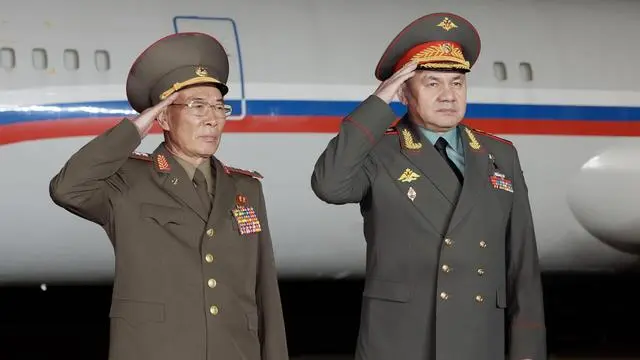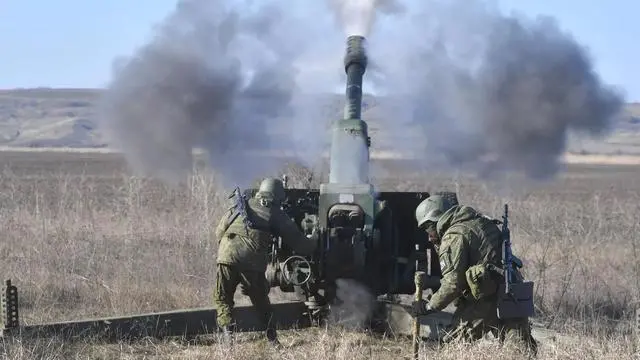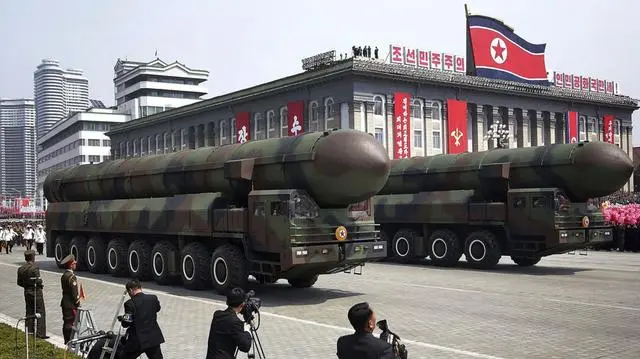In 2023, interactions between Russia and North Korea have been notably frequent.
Initially, Russia dispatched its Defense Minister Shoigu to visit North Korea, where he participated in North Korea’s national day celebrations and viewed their military parade. Following this, North Korea’s leader personally visited Russia, inspecting Russian satellites and weapons.
Such frequent interactions between the two countries signal an intent from both sides to promote deeper cooperation. Given the current circumstances facing both nations, tighter collaboration indeed seems necessary.
Russia’s Need for North Korea: It’s no secret that the world is aware of the Russo-Ukrainian conflict. Although Russia holds a slight advantage in the conflict, it’s still facing significant challenges.
On one hand, NATO continuously supplies military aid to Ukraine, further bolstered by technical support. This assistance empowers Ukraine, conventionally a weaker military power, to engage fiercely with Russia.
On the other hand, Russia is not in a position to swiftly conclude the conflict and is now preparing for prolonged warfare. This situation puts immense pressure on Russia’s military-industrial capacity. Currently, Russia consumes tens to hundreds of thousands of tons of artillery shells on the battlefield each month, not to mention countless drones and precision-guided munitions.
Given this, Russia sees potential in North Korea’s military-industrial system. While North Korea is a small nation, its military strength and corresponding industrial capacity are commendable. Although North Korea might not produce cutting-edge weaponry, they can certainly supply weapons like 155mm artillery shells.
Considering the volume of artillery Russia expends in Ukraine each month, North Korea’s military production can provide significant assistance.
If North Korea is willing to provide military aid, it would not be surprising for Russia to welcome North Korean weaponry.
Moreover, in terms of diplomacy, Russia is relatively isolated internationally. While Ukraine has the backing of the U.S. and Europe, Russia, despite forging ties in Africa, hasn’t found a strong vocal supporter. Influential countries like India and China remain neutral in the Russo-Ukrainian conflict. Hence, Russia is looking to form alliances wherever possible, with North Korea being a prime target. While North Korea’s international voice might be minimal, its strategic position and military prowess in Northeast Asia make it influential, particularly against Japan and South Korea.
For North Korea, forming an alliance with Russia could reduce diplomatic pressures from South Korea and Japan.
North Korea’s Need for Russia: For North Korea, Russia can offer immense support. Presently, Russia possesses three things North Korea desperately requires: food, technology, and a counterbalance to the U.S.
In terms of food, North Korea remains food-insecure, still haunted by the “Arduous March” famine from 1994 to 2004. Although this period has passed, food scarcity remains. Interestingly, Russia, a major grain producer, exports over 40 million tons of grain annually.
Technologically, North Korea is keen on Russia’s aerospace capabilities. Though North Korea has developed intercontinental ballistic missiles, there’s room for technological advancement. And with North Korea’s leader recently inspecting Russian satellites, aerospace technology seems to be on the collaboration agenda. With Russian assistance, North Korean missiles could have enhanced range and precision.
On the front of counterbalancing the U.S., North Korea faces considerable pressures, especially with Biden’s administration ramping up the strain. The U.S. has been escalating tensions between North and South Korea, conducting large-scale military exercises in South Korea, provoking North Korea to frequently launch missiles into the Sea of Japan.
Thus, North Korea naturally wishes for a powerful ally to alleviate these pressures. And Russia, embroiled in conflict with Ukraine and longstanding confrontations with NATO, emerges as an apt candidate.
Nearly 600 Days of Conflict: In summary, both Russia and North Korea are exhibiting a “mutual-needs” inclination. Their growing relationship stems from these mutual needs, and it seems their ties are only going to grow stronger.
And through their cooperation, the global landscape after nearly 600 days of the Russo-Ukrainian conflict is becoming evident. Two opposing camps are emerging.
One camp, led by the U.S. and supported by many European nations along with Ukraine, can be termed the “Existing International Order Leaders.”
The other camp, headed by Russia and progressively aligning with countries in Africa, the Middle East, and now North Korea, represents the “Challengers.”
The emergence of these camps is a result of the ongoing conflict for almost 600 days and is fundamentally the cause of the conflict’s outbreak. The essence of the Russo-Ukrainian conflict is Russia’s challenge to the existing international order. Even before the conflict, hints of the “Challenger’s Alliance” were apparent. However, the war has magnified this faction and clarified its members.
Post-conflict, there’s been a surge in anti-European sentiment in Africa, with nations like Niger even experiencing coups and openly opposing Europe. The Middle East, after reconciliation between Saudi Arabia and Iran, is drifting away from the U.S. They’ve even begun leveraging oil production to choke Western energy supplies.
Notably, in September 2023, through its interactions with Russia, North Korea has clearly indicated its intent to join the fray. If further collaborative endeavors between Russia and North Korea come to light, it’d be a public declaration of their joint challenge to the U.S.


